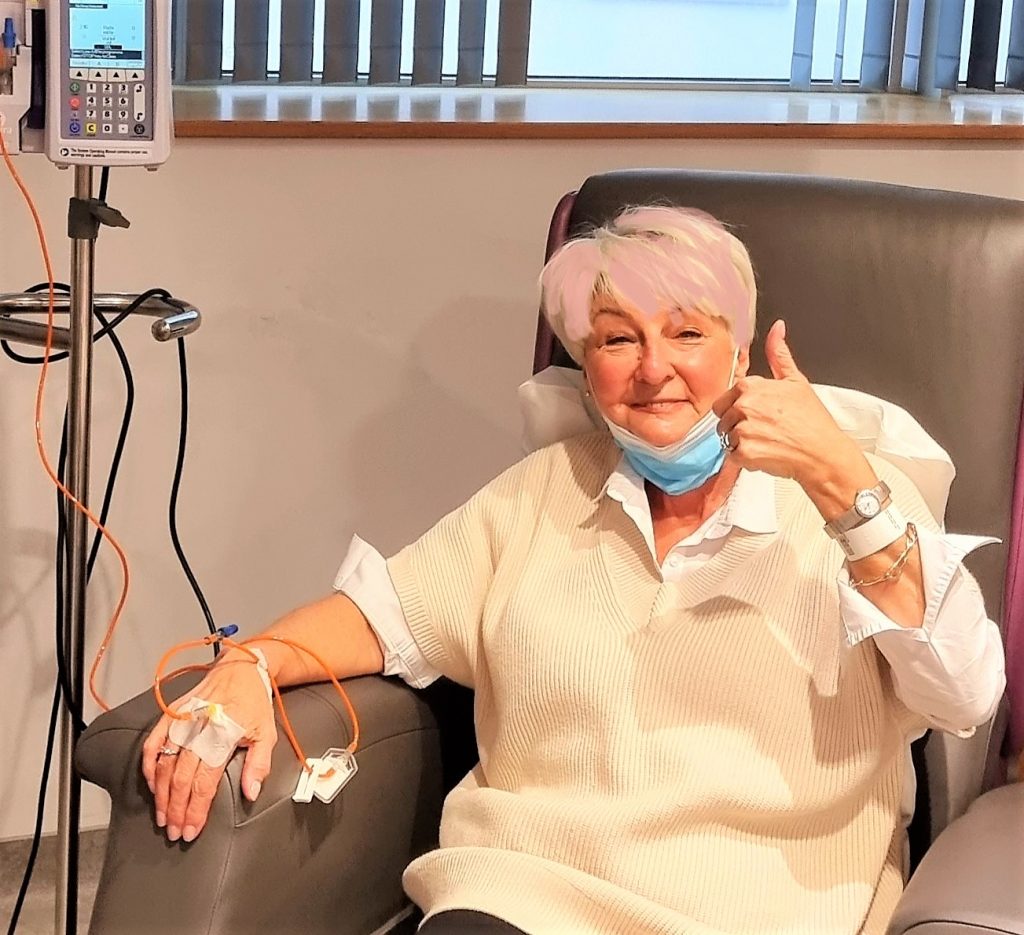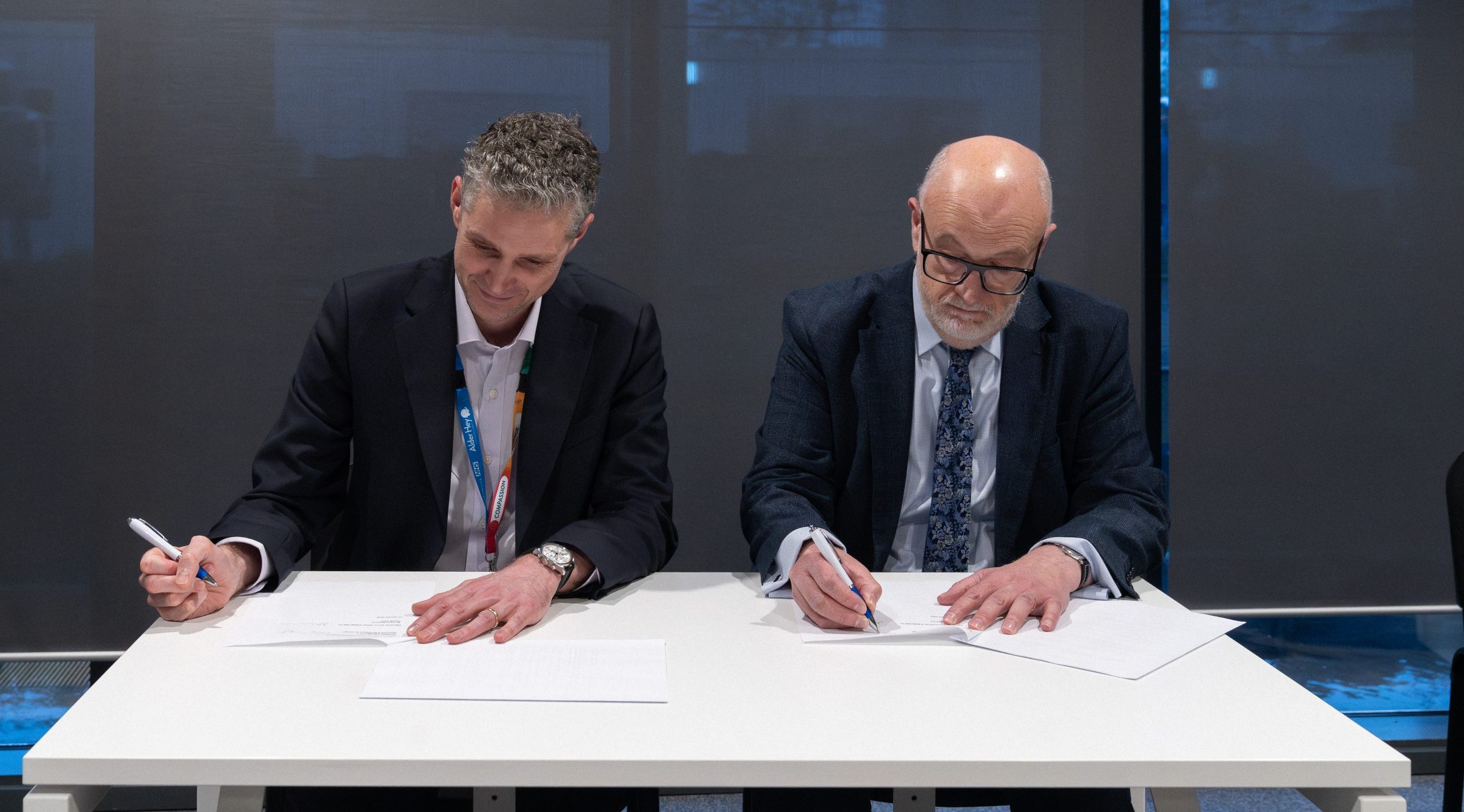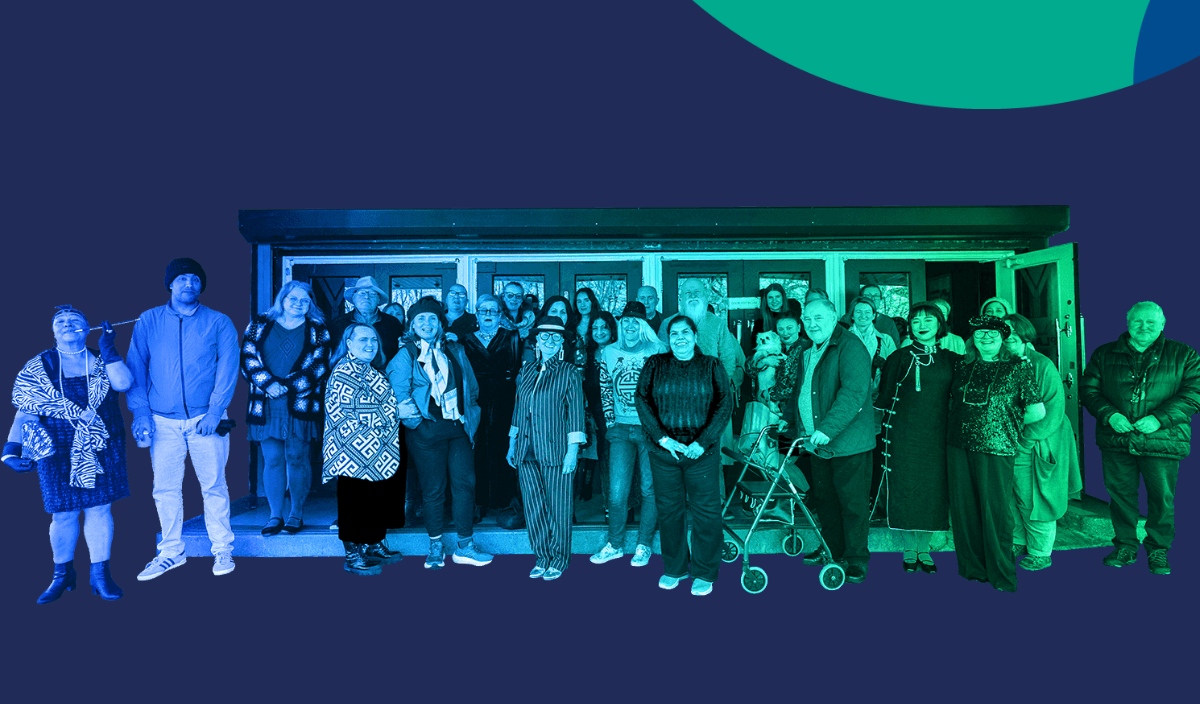RETIRED NURSE GIVEN LIFELINE BY CLINICAL RESEARCH TRIAL
Retired nurse Trish Shannon has been given a lifeline at The Clatterbridge Cancer Centre after cancer she thought she had fought off successfully hit her again almost 20 years later.
Trish had cancer on her tonsil in 2004 and was treated by surgery, radiotherapy and chemotherapy before being given the all-clear after five years of having check-ups with no sign of the cancer returning.
She thought she had successfully put the disease behind her but, in 2021, she suddenly lost her hearing in one ear and was sent for a series of tests to find out what was wrong. An investigation found another tumour in her throat, which was interfering with her hearing.
“I never expected it to have cancer again,” said Trish, who was diagnosed with oropharyngeal cancer. “It was a huge shock.”

Only two years before, Trish had retired from nursing after 40 years, many spent with paediatric teams looking after children, and most recently working in community nursing in Widnes.
She understood that the extent of previous cancer surgery and other treatments for it meant that she was unable to have standard therapies to tackle the new cancer. “My options were pretty limited, and the outlook did not look very good,” said Trish.
She was offered immunotherapy, where her body’s own immune system is boosted to fight the cancer, but the tumour continued to grow slowly. So, Trish, from Huyton, was offered the chance to join the ModiFY clinical trial, a first-in-human research study at The Clatterbridge Cancer Centre NHS Foundation Trust which is designed for patients with hard to treat tumours.
The research involves taking an experimental cancer drug, Modi-1, created by pharmaceutical company, Scancell Holdings, with Clatterbridge being the main site for the study. Principal Investigator for the clinical trial is Professor Christian Ottensmeier, Clatterbridge’s Director of Clinical Research.
“It was a no-brainer going on the trial,” says Trish. “I decided to jump right in – and I’m really pleased I did.”
Trish, 62, was one of the first people in the UK to join the clinical research trial and has been having treatment with the drug since September last year. Since she has been taking the vaccine, the tumour has shrunk by half.
Trish, who has been married to husband Billy for 39 years and who has two children, with one recently-born grandchild and another on the way, said: “The progress has been amazing. To have this kind of effect over such a short space of time gives you a lot of hope – and hope that this treatment can be there and be even better for people in the future.
“Although I was a nurse, I was community-based so did not get involved with clinical trials. So the whole process has been new to me. But everything was explained so thoroughly and I understood what was going to happen to me.
“I feel absolutely brilliant – it is the easiest treatment I’ve ever had. There have been no real side-effects. And this is one of the remarkable things, that it has been a total breeze compared to other cancer treatments, such as chemotherapy and radiotherapy. When I was a paediatric nurse, I saw the effects that chemotherapy had on children. To think that this new treatment could become standard is really amazing.
“I don’t think I’d been here now if I was not on this clinical trial – I’ve felt like all the planets lined up for me. The Clatterbridge team have been so supportive. They never make you feel like you have been left alone.”
Prof Ottensmeier said: “We are delighted that this treatment is working so well for Trish. It is very early days with this therapy and there is a long way to go before this can become a standard treatment for this cancer. But we are very hopeful that personalised therapies to combat cancer can become a reality in the patients we treat here at Clatterbridge.”



